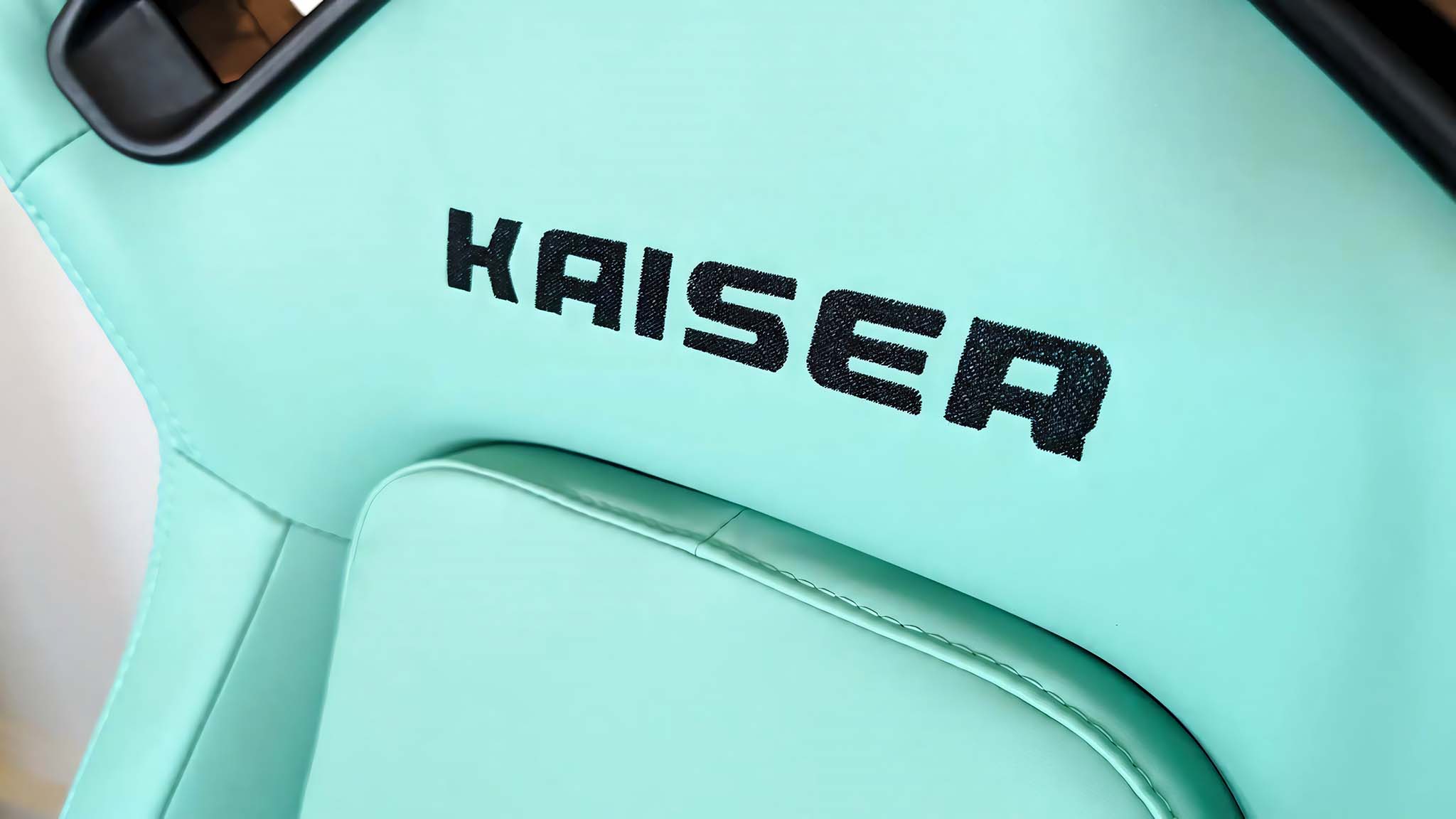Steam, Discord, Epic: Where do the Windows PC gaming store wars leave Microsoft?
With the announcement that Epic Games of Fortnite fame is getting in on the PC gaming storefront race, we have to wonder what this means for Microsoft.
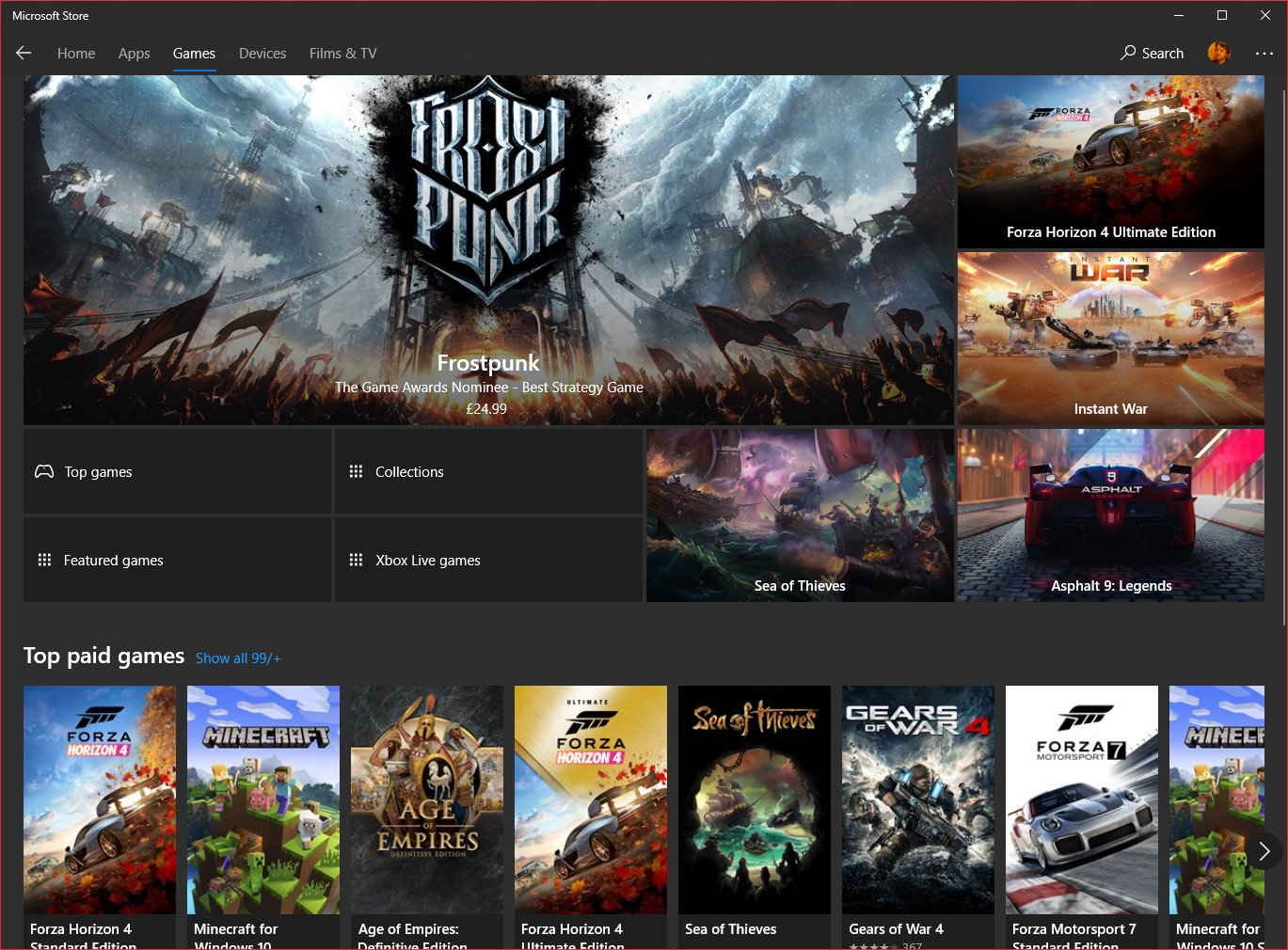
Epic Games of Fortnite fame just announced a creator-friendly PC gaming storefront. The announcement was significant, as Epic touted 88 percent revenue slice for developers, beating out Steam (and for that matter, Microsoft) by a significant margin. Additionally, the Epic store will also allow YouTubers, streamers, and bloggers to get a cut of any sales they send through to the Epic store, which is something Steam has yet to consider.
Things are certainly heating up for Steam. Steam was the de-facto ruler of PC gaming distribution for quite a while, but as companies like Activision Blizzard and EA began selling their games direct to consumers on PC via their own storefronts, others have begun to realize that they don't exactly need Steam anymore. It also doesn't help that Steam is incredibly saturated, making it hard for some devs to gain visibility. Discord's rise as a community platform has also taken eyes away from Steam, as Valve's chat and community tools languish in an archaic state.
With increasing competition from all sides, the window for Microsoft to build a credible PC gaming storefront of its own seems to be shrinking. But as a platform holder, Microsoft does have a few natural advantages. Should it want to capitalize, that is.
The state of the Microsoft Store
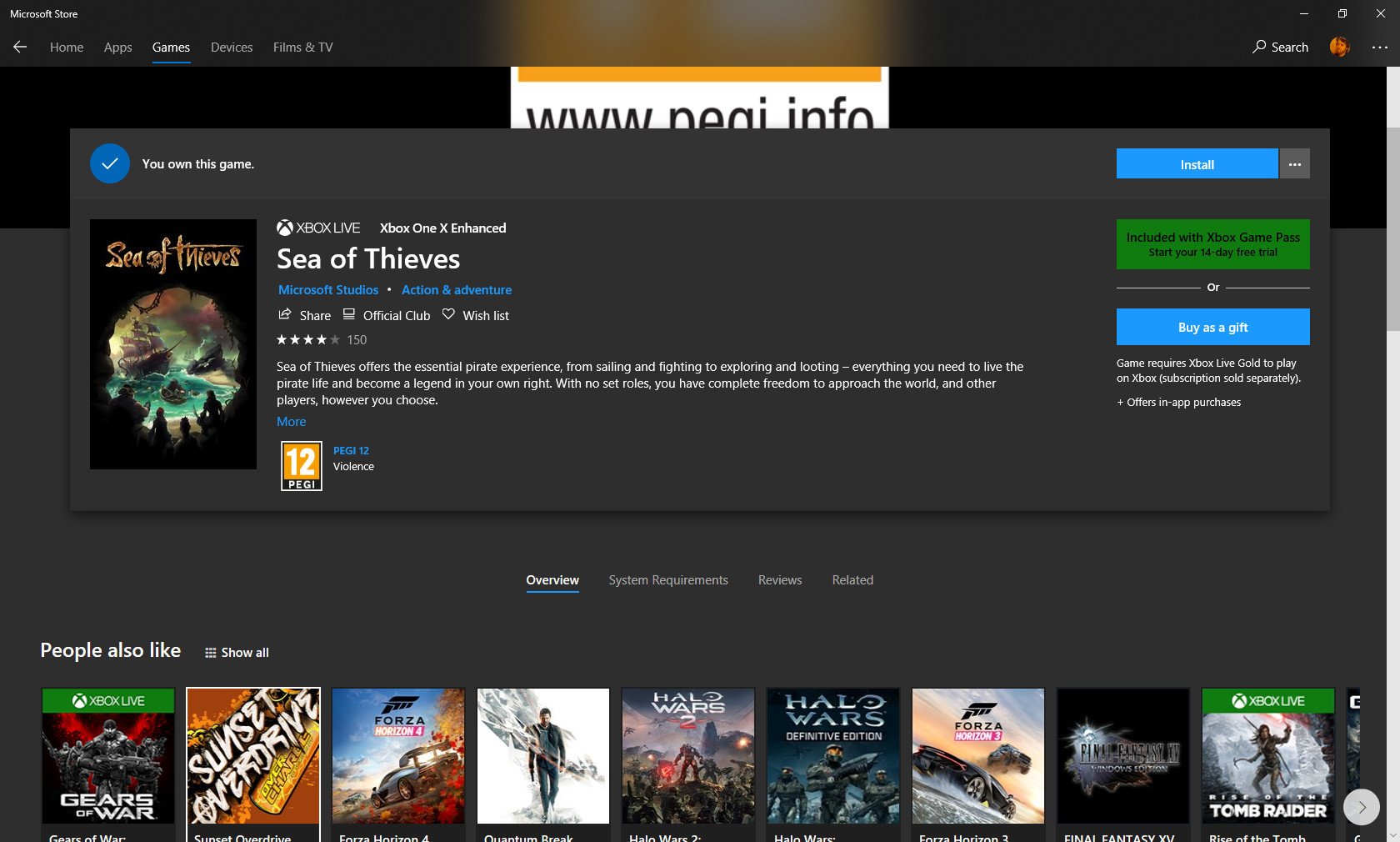
I always end up correcting myself when I write "Microsoft Store," as in my mind it is still the "Windows Store," with a very specific identity, separate from the brick and mortar retail Microsoft stores, and separate from the hardware-centric Microsoft store website. The Windows "Microsoft Store" has a complete and total identity crisis, with plenty of crapware from the Windows 8 era, predatory pay-to-win gaming shovelware, and abandonware from companies who don't see the value in the store in general. Simply put, despite some small improvements, it's still a mess.
Microsoft has signaled an intent to improve its offering for PC gamers, though. It's particularly important because, as Xbox Game Pass expands, it could eventually incorporate PC games as well. It already does with games that support Xbox Play Anywhere (XPA), but the additional developer effort involved to make XPA work for devs has kept third-party support relatively anemic. Thus far, the lion's share of XPA support has come via Microsoft itself, with games like Forza Horizon 4 which are distributed exclusively on the Microsoft Store for PC.
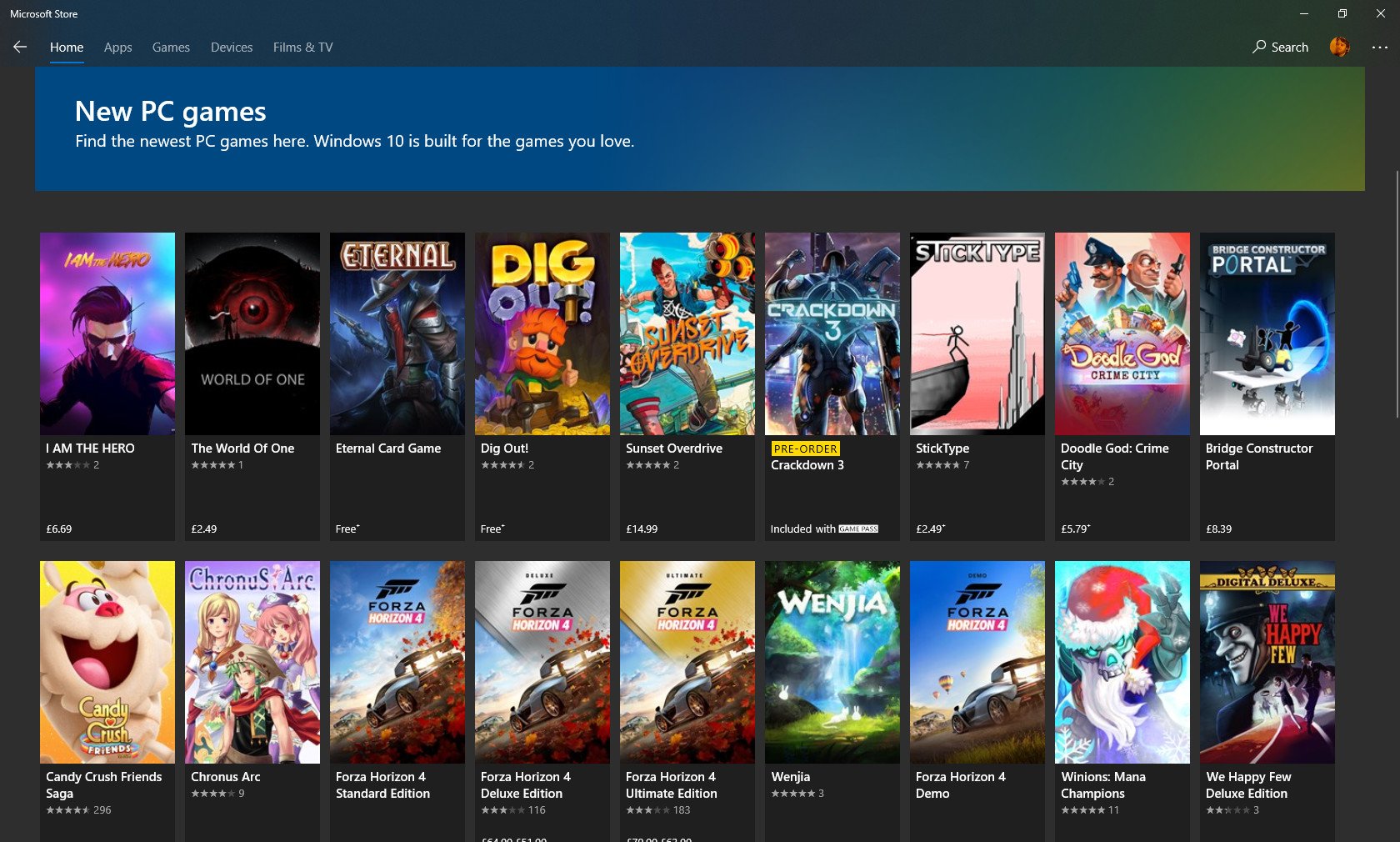
For the most part, it's possible to completely ignore the Microsoft Store once you have installed a game. The basic experience has improved on that front, at least. When Gears 4 and Forza Horizon 3 launched, there were many complications stemming from technical issues with the store, particularly as pertains to larger downloads — the Windows Microsoft Store simply wasn't designed for gaming from the outset, that much is evident.
What could the future look like?
Microsoft is in a bit of a different position when it comes to video game distribution than say, Epic or Steam, as they're both still dealing in Win32 titles packaged as .exe files. Microsoft distributes games packaged into UWP containers as .appx files, which at least theoretically, come with additional security and DRM benefits for devs, at the expense of hard mods. Microsoft has struggled to attract developers to the Microsoft Store, not only because distribution differs a bit against Steam and traditional storefronts, but also simply because ... nobody likes or uses the Microsoft Store.
Get the Windows Central Newsletter
All the latest news, reviews, and guides for Windows and Xbox diehards.
A future game store from Microsoft would probably have to be completely separate from the Microsoft Store, which is crammed with non-gaming "stuff" that completely muddies its focus. Allowing the distribution of traditional games that don't upset developer's workflow should probably be on the cards as well, while also increasing revenue share Microsoft offers to compete with Epic's 88 percent.
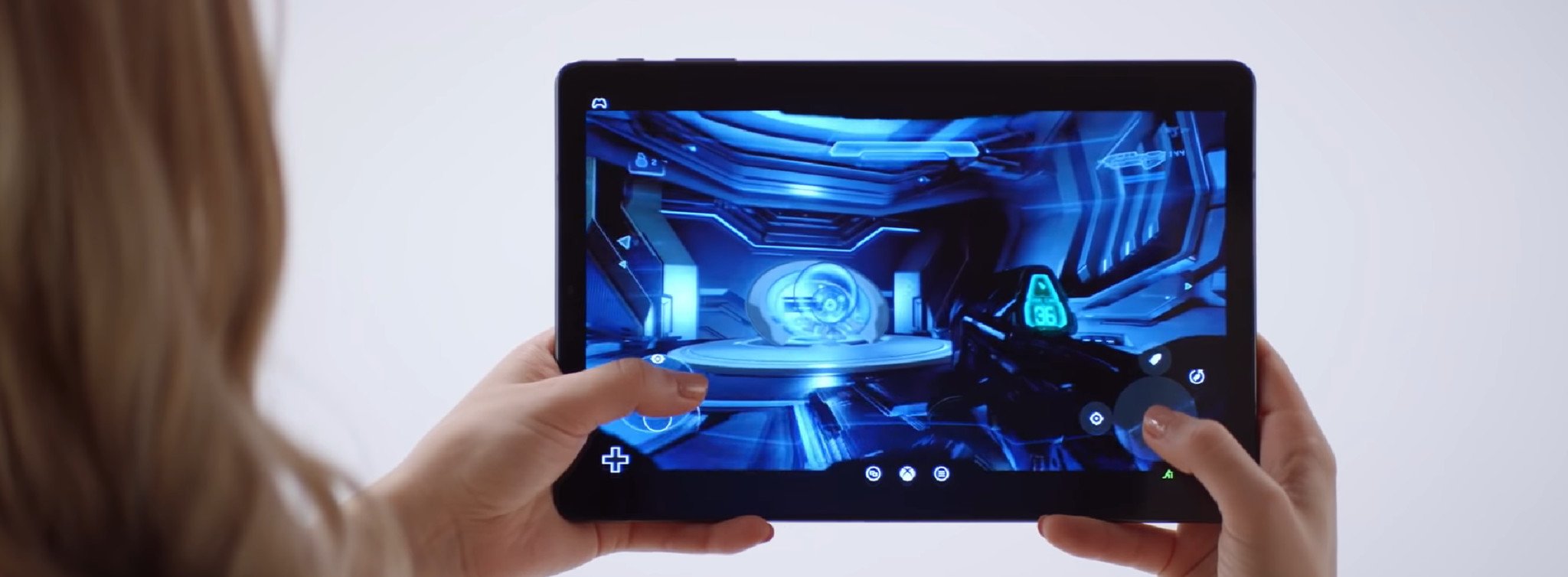
Beyond that, though, Microsoft is also exploring entirely new methods of game delivery in the form of Game Core, which will be part of Windows Core OS we've covered previously. While the details are scant at this time, it seems as though Game Core will further bridge the gap between Xbox and PC game development, potentially allowing developers to bring their Xbox titles over to PC and other Game Core-supporting devices with minimal programming effort.
In addition, Microsoft is also exploring game streaming over the internet with Project xCloud, which would eliminate the need for Win32 entirely. Future ARM-powered super-lightweight, battery-potent laptops and tablets might be able to tap into console-quality games streamed via the internet, circumventing the need for installations. If it works, of course. Microsoft could create a paradigm shift, but there's always going to be more advantages for playing games locally, particularly PC games.
When will we find out more?
A major Microsoft Store overhaul is well overdue, particularly as pertains to gaming. Speaking at X018, Microsoft gaming lead Phil Spencer noted that he wanted to take a bigger leadership role when it comes to the Microsoft Store, but it could be a while before we see those efforts materialize.
I think we have got a ton of work to do on Windows. Windows is something I'm very committed to. I've heard the feedback about our store. I'm going to take a much bigger leadership role on what's going on with the Windows Store and make it really tailored towards the gamers that we know want to see the best from what we have to offer.
The modern Microsoft has taken a different approach to competition in recent years. It has learned to accept when it is defeated, as we saw recently with rumors that Microsoft is killing off Edge, in favor of a new, Chromium-based web browser. For Microsoft to take on Steam in PC game distribution, or Discord in community curation just seems a little far-fetched at this point, but they certainly have the tools and knowhow internally to bridge the gap between Xbox and PC ever further, and build something that only offers something different, but something good.
It could be that Microsoft unveils its efforts in this space to coincide with their efforts revolving around the next Xbox, which we understand will be a family of devices and services, currently codenamed Scarlett. From 5G-powered mobile cloud streaming, new ARM-powered PC form factors, new Windows platform features, studio acquisitions, and the next Xbox, there are certainly a lot of pieces to consider as Microsoft builds its strategy to reach hundreds of millions of gamers. I expect we'll see Microsoft's game plan begin to unveil itself throughout 2019.

Jez Corden is the Executive Editor at Windows Central, focusing primarily on all things Xbox and gaming. Jez is known for breaking exclusive news and analysis as relates to the Microsoft ecosystem while being powered by tea. Follow on Twitter (X) and Threads, and listen to his XB2 Podcast, all about, you guessed it, Xbox!
